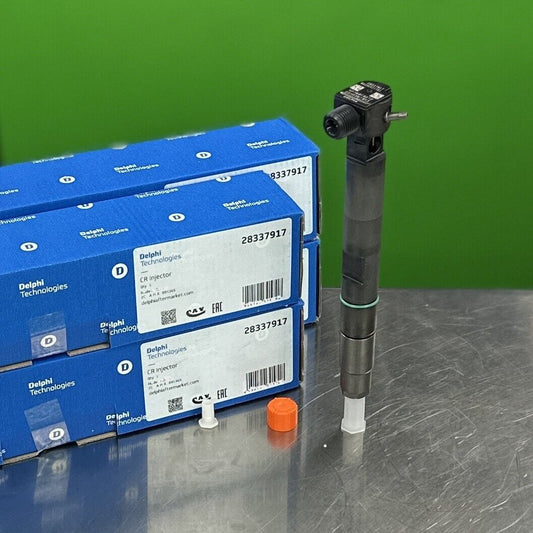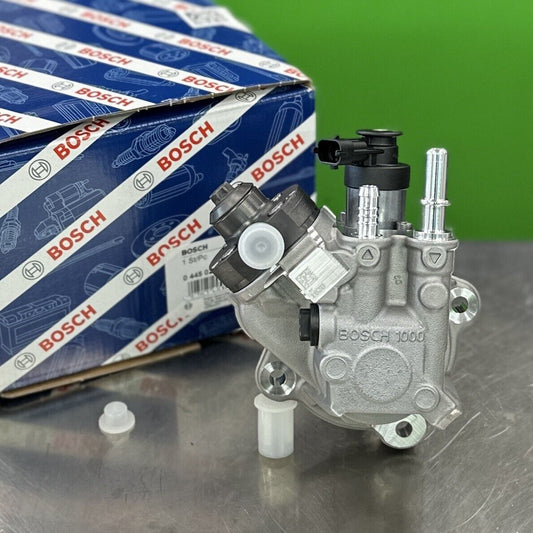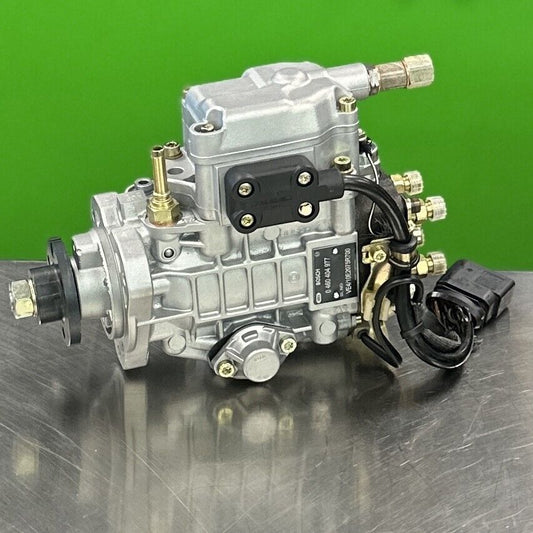5 DIY Fuel Injector Cleaning Hacks
When it comes to maintaining your vehicle's performance and fuel efficiency, keeping the fuel injectors clean is crucial. Luckily, there are several cost-effective and practical DIY methods you can use to clean fuel injectors at home. These hacks not only help in improving engine performance but also enhance fuel efficiency without the need for professional assistance.
Let's dive into five DIY fuel injector cleaning hacks that can make a significant difference in how your engine runs:
- Using Fuel Injector Cleaner Additives: One of the simplest methods is to use fuel injector cleaner additives. By adding these solutions to your fuel tank, you can effectively remove deposits and improve injector spray patterns. This process enhances fuel atomization and combustion efficiency, leading to smoother engine operation.
- DIY Fuel Injector Flush: Explore the step-by-step process of performing a DIY fuel injector flush using a cleaning kit. This technique helps in removing stubborn deposits and build-up, ensuring optimal fuel flow and smoother engine performance.
- Ultrasonic Cleaning at Home: Discover how to utilize an ultrasonic cleaner to deep clean fuel injectors. This advanced method can effectively remove contaminants and restore optimal fuel flow for better engine performance.
- Homemade Cleaning Solutions: Learn how to create DIY cleaning solutions using household items like vinegar or baking soda. These natural alternatives can break down deposits and keep fuel injectors clean without the use of harsh chemicals.
- Manual Cleaning Techniques: Explore hands-on manual cleaning methods such as using a brush or compressed air to remove debris from fuel injectors. These techniques can help maintain injector performance between professional cleanings.
By incorporating these DIY fuel injector cleaning hacks into your maintenance routine, you can ensure that your vehicle's engine operates at its best. Experiment with these methods to find the ones that work best for your specific needs and enjoy improved performance and fuel efficiency without breaking the bank.
1. Using Fuel Injector Cleaner Additives
Using fuel injector cleaner additives is a cost-effective way to improve the performance of your vehicle's fuel injectors. By effectively removing deposits and enhancing injector spray patterns, these additives can help optimize fuel atomization and combustion efficiency. This simple DIY hack can make a significant difference in how your engine operates, without the need for professional assistance.
One way to use fuel injector cleaner additives is to simply pour the recommended amount into your gas tank before filling up with fuel. As you drive, the additive will mix with the gasoline and pass through the fuel system, cleaning the injectors along the way. This method is convenient and can gradually improve injector performance over time.
Another effective method is to directly inject the cleaner into the fuel rail or intake manifold using a cleaning kit. This allows the additive to directly target the injectors and remove any stubborn deposits that may be affecting their function. By following the manufacturer's instructions carefully, you can ensure a thorough cleaning process.
When using fuel injector cleaner additives, it's important to choose a high-quality product that is compatible with your vehicle's fuel system. Reading reviews and recommendations can help you select the right additive for your specific needs. Regularly incorporating these additives into your maintenance routine can help prevent future issues and keep your fuel injectors in top condition.
2. DIY Fuel Injector Flush
DIY Fuel Injector Flush is a cost-effective and practical method to clean fuel injectors at home, ensuring optimal engine performance and fuel efficiency. By following a step-by-step process using a cleaning kit, you can effectively remove stubborn deposits and build-up for smoother engine operation. This technique helps enhance fuel atomization and combustion efficiency, ultimately improving the overall performance of your vehicle.
When performing a DIY fuel injector flush, it is essential to gather all the necessary materials and carefully follow the instructions provided with the cleaning kit. This method allows you to take control of maintaining your fuel injectors without the need for professional assistance, saving both time and money in the long run.
One of the key benefits of DIY fuel injector flushing is the ability to target specific areas of the injector that may be prone to clogging or build-up. By using specialized cleaning solutions included in the kit, you can ensure a thorough cleaning process that restores optimal fuel flow and injector spray patterns.
Additionally, DIY fuel injector flushing can help prevent potential issues such as engine misfires, rough idling, and decreased fuel efficiency. By incorporating this maintenance task into your regular vehicle care routine, you can prolong the lifespan of your fuel injectors and avoid costly repairs down the road.
Overall, DIY Fuel Injector Flush offers a convenient and efficient way to keep your fuel system clean and functioning properly. With a little time and effort, you can enjoy the benefits of improved engine performance and fuel efficiency without the need for professional intervention.
3. Ultrasonic Cleaning at Home
Ultrasonic cleaning at home offers a high-tech solution for deeply cleaning fuel injectors without the need for professional equipment. This method utilizes ultrasonic waves to create microscopic bubbles in a cleaning solution, which then implode on the surface of the injector, effectively removing contaminants. The process is simple yet powerful, providing a thorough cleaning that can improve fuel flow and injector performance.
To perform ultrasonic cleaning at home, you will need an ultrasonic cleaner, a suitable cleaning solution, and the fuel injectors to be cleaned. The first step is to disassemble the injectors and place them in the ultrasonic cleaner filled with the cleaning solution. The ultrasonic waves will agitate the solution, creating a scrubbing action that reaches into tiny crevices and removes even the toughest deposits.
This method is particularly effective for removing carbon buildup, varnish, and other stubborn contaminants that can hinder fuel injector function. By using ultrasonic cleaning, you can restore the injectors to like-new condition, ensuring optimal fuel atomization and combustion efficiency. It's like giving your fuel system a spa day, rejuvenating its performance and extending its lifespan.
One of the key advantages of ultrasonic cleaning is its ability to clean intricate parts of the fuel injectors that are difficult to reach with manual methods. The microscopic bubbles generated during the process can penetrate deep into the injector nozzles and openings, ensuring a thorough and comprehensive cleaning. This results in improved fuel flow and injector spray patterns, leading to better engine performance and fuel efficiency.
Overall, ultrasonic cleaning at home provides a convenient and effective way to maintain and optimize fuel injectors without the need for professional services. By harnessing the power of ultrasonic technology, you can ensure that your vehicle's fuel system operates at peak performance, delivering smooth acceleration, efficient combustion, and overall reliability.
4. Homemade Cleaning Solutions
When it comes to cleaning fuel injectors at home, homemade solutions can be both effective and environmentally friendly. By utilizing common household items like vinegar or baking soda, you can create DIY cleaning solutions that are gentle yet powerful. These natural alternatives offer a cost-effective way to break down deposits and keep your fuel injectors clean without resorting to harsh chemicals that may harm the environment.
One popular homemade cleaning solution involves using a mixture of vinegar and water. Vinegar's acidic properties help dissolve deposits and carbon build-up inside the fuel injectors. By creating a solution with equal parts vinegar and water, you can effectively clean the injectors and improve their performance. This method is not only eco-friendly but also budget-friendly, making it a sustainable choice for DIY enthusiasts.
Another option is to utilize baking soda as a cleaning agent for fuel injectors. Baking soda's abrasive nature can help scrub away stubborn deposits and contaminants, restoring the injectors' functionality. By mixing baking soda with water to create a paste, you can apply it to the injectors and let it sit for a while before rinsing it off. This gentle yet efficient method can contribute to maintaining optimal fuel flow and combustion efficiency.
For a more comprehensive cleaning solution, you can combine vinegar and baking soda to create a powerful DIY cleaner. The chemical reaction between these two ingredients produces a foaming effect that can penetrate and dislodge tough deposits in the fuel injectors. This homemade concoction offers a deep cleaning solution that is safe to use and does not pose any harm to the environment.
Additionally, incorporating lemon juice into your homemade cleaning solution can provide a refreshing citrus scent while effectively removing impurities from the injectors. Lemon juice's natural acidity can help dissolve grime and deposits, leaving your fuel injectors clean and odor-free. This simple yet efficient method adds a pleasant touch to the cleaning process, making it a delightful DIY experience.
In conclusion, homemade cleaning solutions offer a sustainable and affordable way to maintain the performance of your fuel injectors. By harnessing the power of natural ingredients like vinegar, baking soda, and lemon juice, you can effectively clean and optimize your injectors without harming the environment. These DIY solutions not only save you money but also contribute to a greener approach to vehicle maintenance.
5. Manual Cleaning Techniques
When it comes to manual cleaning techniques for fuel injectors, there are several hands-on approaches you can take to ensure optimal performance and efficiency. Let's dive into some DIY methods that can help you maintain your fuel injectors without professional assistance.
One effective manual cleaning technique is using a specialized brush to gently scrub away any debris or buildup on the fuel injectors. This method allows for targeted cleaning and can help improve injector spray patterns for better fuel atomization.
Another manual cleaning method involves using compressed air to blow out any particles or contaminants that may be clogging the injectors. This technique can dislodge stubborn deposits and restore proper fuel flow, ultimately enhancing engine performance.
If you prefer a more systematic approach, you can create a checklist for manual cleaning, detailing each step of the process to ensure thorough maintenance. This organized method can help you stay on track and effectively clean your fuel injectors.
For a visual guide on manual cleaning techniques, you can refer to the following table outlining the steps involved in hands-on injector maintenance:
| Manual Cleaning Steps | Description |
|---|---|
| 1. Inspection | Check for any visible debris or buildup on the injectors. |
| 2. Brush Cleaning | Gently scrub the injectors with a cleaning brush to remove deposits. |
| 3. Compressed Air | Use compressed air to blow out any remaining particles. |
| 4. Final Inspection | Inspect the injectors again to ensure they are clean and free of debris. |
By incorporating manual cleaning techniques into your regular maintenance routine, you can prolong the life of your fuel injectors and keep your engine running smoothly. These DIY methods offer a cost-effective and practical way to ensure optimal performance without the need for professional help.
```htmlFrequently Asked Questions
-
Can I clean fuel injectors at home?
Yes, you can! There are several DIY methods such as using fuel injector cleaner additives, performing a DIY fuel injector flush, ultrasonic cleaning at home, homemade cleaning solutions, and manual cleaning techniques that can help you clean fuel injectors effectively.
-
Are DIY fuel injector cleaning methods cost-effective?
Absolutely! DIY fuel injector cleaning hacks are not only cost-effective but also practical. These methods can improve engine performance, fuel efficiency, and overall vehicle operation without the need for professional assistance, saving you time and money in the long run.
-
Is it safe to use homemade cleaning solutions on fuel injectors?
Yes, it is safe to use homemade cleaning solutions like vinegar or baking soda on fuel injectors. These natural alternatives are gentle yet effective in breaking down deposits and keeping fuel injectors clean without the use of harsh chemicals, ensuring optimal performance.
-
How often should I clean my fuel injectors using DIY methods?
The frequency of cleaning fuel injectors using DIY methods depends on various factors such as driving conditions, fuel quality, and maintenance schedule. It is recommended to follow the manufacturer's guidelines and perform cleaning as needed to maintain optimal injector performance.
-
Can DIY fuel injector cleaning hacks improve fuel efficiency?
Yes, DIY fuel injector cleaning hacks can improve fuel efficiency by enhancing fuel atomization, combustion efficiency, and injector spray patterns. By keeping fuel injectors clean and free of deposits, you can experience better fuel economy and overall engine operation.



